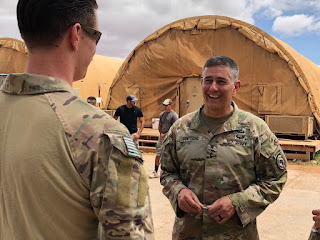Somalia Worries That a U.S. Withdrawal Will Be Disastrous
The American-trained Somali commando force Danab is usually deployed to counter the Qaeda-linked group Al Shabab: liberating areas it controls, ending its attacks on government offices and beachside restaurants, and targeting senior Shabab operatives.
But with President Trump expected to withdraw American troops from Somalia, the highly specialized Somali force will be left in limbo, jeopardizing whatever security gains it helped achieve in recent years, officials and observers said. The U.S. military presence has been heavily focused on training, equipping and supporting the elite 850-soldier Somali unit.
“The United States troops and the Danab unit they have trained are the ones who have taken a critical lead in disrupting terrorism activities,” said Hussein Sheikh-Ali, chairman of the Hiraal Institute research group and a former national security adviser to the Somali president. “If the mentor leaves, the unit might just literally collapse.”
Following the Pentagon’s formal announcement on Tuesday that the United States will reduce its military presence in Afghanistan and Iraq, acting Defense Secretary Christopher C. Miller, a former Green Beret and top counterterrorism official, is also expected to approve in the coming days plans to remove most if not all of the more than 700 American troops in Somalia conducting training and counterterrorism missions.
The plans under discussion, part of Mr. Trump’s campaign promises, would be to shift those duties to U.S. forces in neighboring Djibouti and Kenya, according to senior American officials — allowing those stations to carry out strikes against the Shabab.
The planned cuts come at a critical time, as Somalia prepares to hold parliamentary and presidential elections in the coming months. But the vote is being undermined by wrangling between federal and regional authorities, giving groups like the Shabab and the Islamic State an opening to disrupt the polls.
Amid escalating tensions over the elections, tribal conflict continues, hunger is a widespread problem, and regional and international powers are competing for influence in Somalia, a strategically important nation in the Horn of Africa.
Even in the face of relentless American drone strikes, the Shabab have been resilient, transforming into a leaner organization that holds sway over large stretches of the Somali hinterland. The group continues to expand its bomb-making operations, infiltrate government institutions and carry out attacks against civilian and security targets in both Kenya and Somalia. It is also awash in cash, collecting millions of dollars in tariffs and payoffs and investing in real estate and businesses, according to a recent United Nations report.
If the United States pulls out of Somalia now, experts say it will not only present another huge challenge for the Somali government but also exert additional pressure on security agencies’ ability to tackle the threat from Al Shabab.
“Al Shabab will frame this as a victory,” said Omar Mahmood, senior Somalia analyst at the International Crisis Group. “They will use it as evidence of their ability to take on a world power like the United States and force them to leave Somalia.”
Somali officials have voiced concern about the troop withdrawals. When the plans first surfaced in October, President Mohamed Abdullahi Mohamed tweeted that a victory over the Shabab “can only be achieved through continuous security partnership and capacity-building support” with the United States.




Comments
Post a Comment